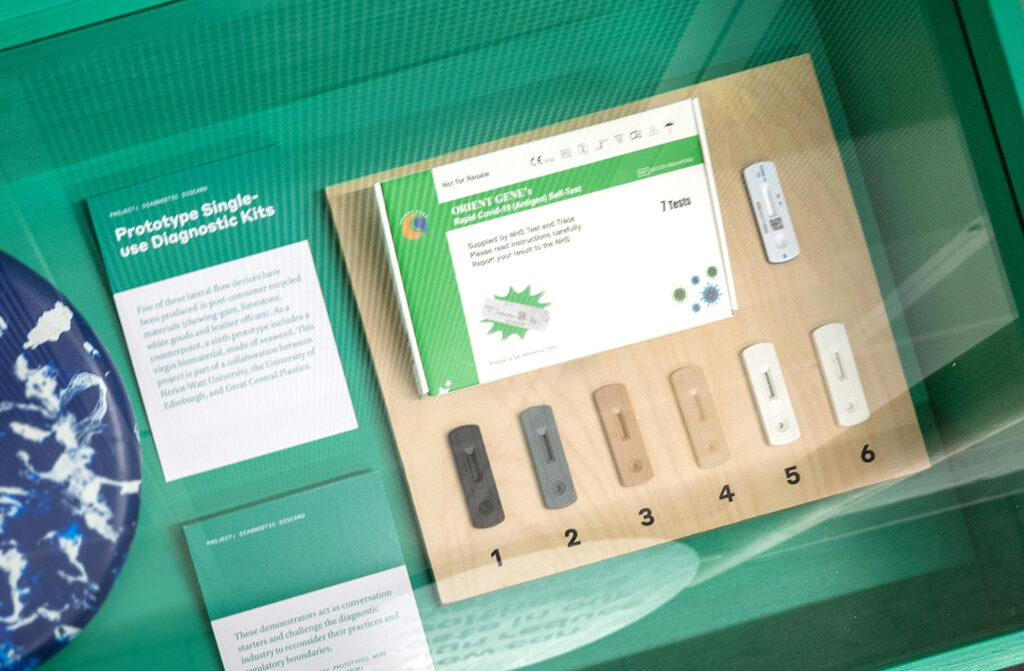Diagnostic Discard
Building on existing research, this project is prototyping alternatives to plastic diagnostic kits.

About the Project
Through the Covid-19 pandemic, there was a visible rise in single-use plastics in mass-produced diagnostic kits. The World Health Organisation estimated that over 140 million test kits used around the world during the first phase of the pandemic could have generated as much as 2,600 tonnes of waste — most of it plastic. Through this project, we are using engineering design and material science to explore, test and develop alternative non-plastic materials in mass-produced diagnostic kits. A key part of this project is collaborative working with medical manufacturers, buyers and regulators to bridge the multiple priorities of test accuracy, patient safety, and environmental sustainability.
Building on existing research, five of these lateral flow devices have been produced in post-consumer recycled materials (chewing-gum, limestone, white goods and leather offcuts). As a counterpoint, a sixth prototype includes a virgin biomaterial, made of seaweed. This project is part of a collaboration between Heriot-Watt University, the University of Edinburgh, and Great Central Plastics.

